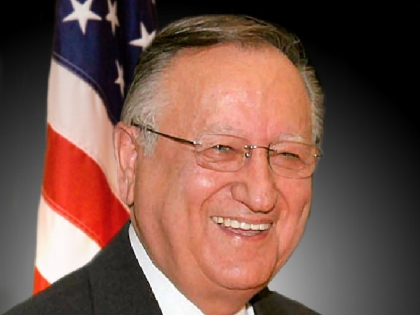
Senate Passes Padavan's NYC School Governance Legislation
Frank Padavan
August 6, 2009
-
ISSUE:
- Education
The New York State Senate today passed legislation sponsored by Senator Frank Padavan (S.5887) that extends and improves mayoral control of New York City schools. The legislation now goes to Governor Paterson where he is expected to sign it into law before the start of the school year.
“Over the past seven years, mayoral control has been a success,” Padavan said. “Since its inception in 2002, mayoral control has helped increase test scores across the board and fostered rising graduation rates. Schools are safer and have been instilled with much needed accountability. With mayoral control and the efforts of teachers, educators and parents, education in New York City is stronger today and the futures of 1.1 million students in New York are brighter.”
“Following months of debate and discussions the concerns of all stakeholders -parents, students, educators, teachers and administrators-are addressed in this legislation. It contains all the components that improves and enhances parental involvement and transparency. This legislation builds upon the progress of the past seven years and will help ensure future success in educating our children throughout the five boroughs,” Padavan said.
New York City Mayor Michael Bloomberg said: “Throughout the debate over the reauthorization of mayoral control of schools, Senator Frank Padavan has demonstrated strong leadership and steady determination. He is a results-oriented legislator, and recognizes that New York City public schools have made tremendous gains over the past seven years. I thank him for sponsoring this important legislation, for helping to assure its passage in the State Senate, and for his support of the extraordinary progress made by our principals, teachers, and schoolchildren.”
Padavan’s legislation extends mayoral control over New York City schools until June 30, 2015. The legislation also changes the membership of the Board of Education by adding an eighth appointment for the mayor and makes the schools chancellor a non-voting ex-officio of the board of education. The board of education will now be required to elect its own chairperson from among the voting members of the board. Additionally, a requirement is added that two of the mayor’s voting member appointments to the board must be parents of students attending public schools or a student who has attended a public school within the last two years.
The legislation also creates a new citywide council for high schools which will be compromised of 13 voting members and one non-voting member and a citywide council for English language learners which will be comprised of 11 voting members and one non-voting member. Presently there is one citywide council which addresses special education. The role of the council is to advise the board of education and comment on their specific area of educational policy for New York City. Each council must issue an annual report regarding the effectiveness on New York City’s educational services.
The comprehensive legislation also extends and enhances the roles of the board of education, the community district education councils, district superintendents, and school-based management teams. In particular, the legislation:
• Requires the Board of Education to hold one public meeting each month;
• Enhances the role of community district education councils by requiring their consultation in the selection of community superintendent
• Requires community district education councils to hold joint public hearings with the schools chancellor regarding school closing and school utilization;
• Specifies that superintendents work predominately in their respective districts;
• Expands the power of the board of education by requiring its approval with regards to regulations proposed by the Schools Chancellor, the capital plan, annual estimates of amounts needed for school operations, revenue allocations among community districts, procurement policy and numerous contract awards and school closures or changes in school utilization;
• Requires the Schools Chancellor to produce an educational impact statement regarding proposed school closing or changes in school utilization and conduct public meetings with the impacted community district education council and school-based management team;
• Requires the Schools Chancellor to adopt a procurement policy addressing specific procurement methods;
• Mandates school-based management teams participation at hearings conducted by the Schools Chancellor in relation to school closings or school utilization hearings;
• Requires district superintendents to consult with school-based management teams regarding recruitment of principals and assistant principals;
• Explicitly requires principals to consult with school-based management teams regarding the management of schools;
• Authorizes the Comptroller of the City of New York to conduct program audits of the City school district; and
• Requires the New York City Independent Budget Office to analyze and report on financial and educational matters
The legislation passed the State Assembly in June by a bipartisan vote of 129-18. The legislation is supported by Governor Paterson and countless elected, community and educational leaders in New York City. Education Secretary Arne Duncan has expressed his support for extending mayoral control of New York City Schools.
Share this Article or Press Release
Newsroom
Go to NewsroomPadavan Honors New Eagle Scout In Bayside
June 15, 2009
Padavan Honors New Eagle Scout in Bayside
June 15, 2009